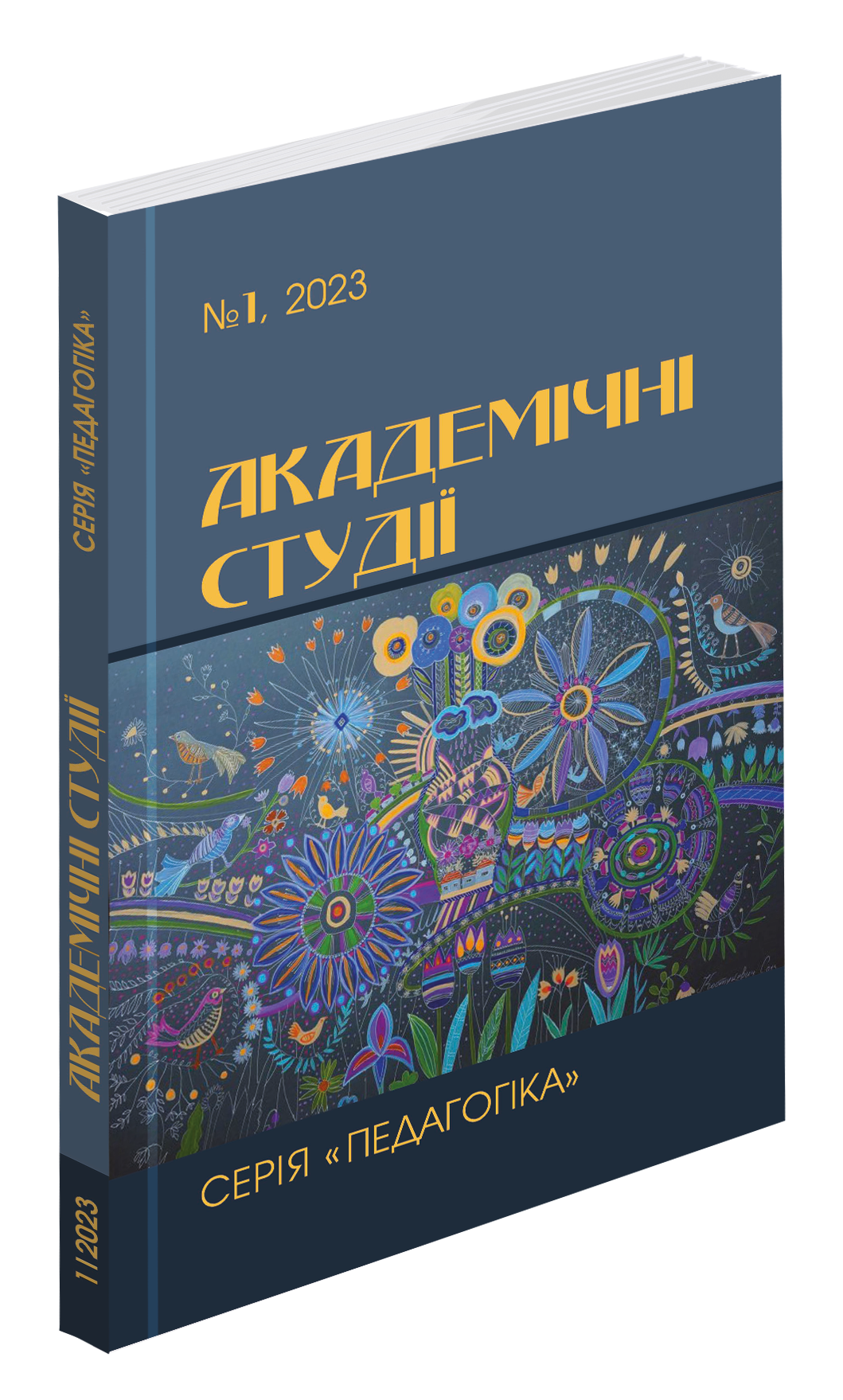Abstract
The article examines the use of the distance education system during teaching a foreign language, which caused by the necessity in education of students at higher education institutions. The distance learning process is carried out using a combination of synchronous and asynchronous means, maintaining flexibility, convenience and ensuring quality and efficiency in learning English. But remote methods of teaching English to students at higher education institutions under the “International Economics” educational program remain unexamined and require detailed study. The purpose of the study is to substantiate the role, importance, and necessity of distance learning in English at higher education on the characteristics of modern technologies. The object of the research is the distance educational process of a foreign language. The subject of the study is distance learning methods of a foreign language for students at higher education institutions in Ukraine. Research methods: analysis of the literature on the research topic, systematization and comparison of information about the learning process and application of the distance learning system, descriptive, functional, constructive and translation methods. The use of distance learning at institutions of higher education today has both advantages and disadvantages. Advantages: access to knowledge, regardless of the participants’ location; reduction of expenses at the educational institutions for rent of premises and communal services; the possibility of simultaneous training of a large number of students; increasing time for independent work; increasing the level of knowledge with the help of modern means in information and communication technologies. Disadvantages: constant cooperation via the Internet will not fully replace direct communication; the lack of an opportunity to objectively assess the knowledge of students of higher education; lack of self-regulation, self-discipline, concentration, attention, perseverance, patience, organization, responsibility and motivation for a long time each day; lack of high-quality Internet connection services for all participants at the same time. Foreign language teachers should find the most effective and efficient ways to teach students of higher education, introduce new teaching methods, and improve the quality of the distance learning process. The perspective of further research involves studying the role of interactive platforms as an effective tool for distance learning English by students in higher education.
References
Биков В. Ю. Моделі організаційних систем відкритої освіти: монографія. К. : Атіка, 2009. 684 с.
Вишнівський В. В., Гніденко М. П., Гайдур Г. І., Ільїн О. О. Організація дистанційного навчання. Створення електронних навчальних курсів та електронних тестів. К.: ДУТ, 2014. 140 с.
Гулак В. О. Особливості дистанційного навчання англійської мови: робота на здобуття кваліфікаційного ступеня бакалавра; спец. : 6.020303 – філологія. Суми: СумДУ, 2019. URL : https://essuir.sumdu.edu.ua/bitstreamd ownload/123456789/74165/3/Gulak_bac_rob_pdf.pdf;jsessionid=3C63856DA70681FBF036E0AFF4688E7C
Дистанційна освіта. Міністерство освіти і науки України. 2021. URL: https://mon.gov.ua/ua/ osvita/vishaosvita/distancijna-osvita
Коваленко А. Дистанційне навчання іноземної мови за умов пандемії: специфіка форм і методів роботи. Актуальнi питання гуманiтарних наук. Вип. 35, том 3. 2021. C. 250–255.
Концепція розвитку дистанційної освіти в Україні року: Постанова від 20 грудня 2000 / Міністерство освіти і науки України. URL : http://www.osvita.org.ua/distance/pravo/00.html.
Кухаренко В. М., Рибалко О. В., Сиротенко Н. Г. Дистанційне навчання: умови застосування. Дистанційний курс : навч. пос. Х: НТУ «ХПІ», «Торсінг», 2002. 320 с.
Кушмар Л. В., Колот Л. А. Myenglishlab як одна з інноваційних платформ змішаного навчання. Вісник ХНУ імені В. Н. Каразіна. Серія: Іноземна філологія. Методика викладання іноземних мов. Вип. 89. 2019. С. 52–58. URL: https://doi.org/10.26565/2227-8877-2019-89-08
Про вищу освіту : Закон України № 1556–II від 1 липня 2014 р. URL: https://zakon.rada.gov.ua/ laws/show/1556-18#Text
Adams J. E-learning offer myriad opportunities for rapid talent development. 2008. Pp. 69–73. URL: http://yellowedge.files.wordpress.com/2008/03/adams.pdf.
Bodendorf F. Computer in der fachlichen und universitären Ausbildung. München, 1990. 131 p.
Dichanz H. E-Learning: Begriffliche, psychologische und didaktische Überlegungen zum «electronic learning». Medienpädagogik. 2001. URL: www.medienpaed.com/00-2/dichanz_ernst1.pdf
Hoрpe G. Classification and Sustainability Analysis of E-learning Applications. Universitat Hannover, 2003. 243 p.
Kettunen J. Strategy Process in Higher Education. Journal of Institutional Research. Vol. 15, No 1. 2010. Pp. 16–27.
Yunsheng Z. A Study of Autonomy English Learning on the Internet. English Language Teaching. Vol.1, № 1. 2008. Pp.147–150.

